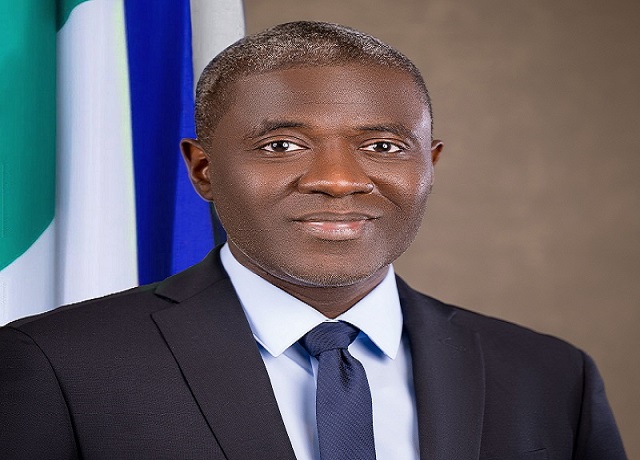News Highlights:
- NCC Introduces Draft General Authorisation Framework to Foster Innovation
- Framework Aligns with National Digital Goals and Global Best Practices
The Nigerian Communications Commission (NCC) has taken a major step toward overhauling its regulatory framework with the unveiling of the Draft General Authorisation Framework, a bold and forward-looking initiative designed to foster innovation, deepen inclusivity, and accelerate the growth of Nigeria’s digital economy.
The landmark announcement was made during a stakeholders’ forum in Abuja, which brought together key players from across the telecom ecosystem, including Mobile Network Operators, service providers, infrastructure companies, startups, academia, and civil society groups.
In his keynote address, the Executive Vice Chairman and Chief Executive Officer of the NCC, Dr. Aminu Maida, described the forum as “an important stakeholder engagement on the Draft General Authorisation Framework.”
He praised the commitment and presence of stakeholders, saying their involvement “reinforces our united vision for a digitally inclusive Nigeria.”
Dr. Maida reviewed the telecom industry’s impressive trajectory since the sector was liberalized 24 years ago, noting that the country had achieved 79.65% teledensity and 48.81% broadband penetration as of May 2025, and credited this growth to the widespread adoption of mobile technologies, rising data consumption, and an expanding demand for digital services.
However, Dr. Maida cautioned that the pace of global innovation now demands a shift in how regulation is approached. “The nature of innovation today demands a regulatory paradigm that is not only responsive but enabling,” he said. “Modern regulation must be designed to enable innovation rather than hinder it.”
The highlight of the forum was the introduction of the Draft General Authorisation Framework, which Dr. Maida described as a flexible and responsive licensing regime designed to accommodate emerging services that fall outside the boundaries of the current licensing structure.
He outlined three key instruments under the framework: Proof-of-Concept pilots for testing new technologies in real-world conditions; a Regulatory Sandbox for controlled and supervised trials such as Open RAN or dynamic spectrum sharing; and an Interim Service Authorisation for services that do not yet fit existing licence categories.
“These instruments are not just regulatory tools,” Dr. Maida explained. “They are platforms for innovators of all sizes—startups and established companies alike—to test, refine, and deploy their ideas in a safe, monitored environment.”
Meanwhile, the Director of the Licensing and Authorisation Department of the NCC, Usman Mamman provided deeper insights into the development of the framework, describing it as a direct response to the challenges posed by the global digital ecosystem.
“This engagement marks a pivotal step in our collective journey toward a more agile, inclusive, and innovation-driven communications sector in Nigeria,” the Director noted.
He explained that the framework emerged from extensive internal research and cross-departmental collaboration, alongside a comprehensive review of service applications and proposals not covered under existing licence categories.
“One of the key outcomes of this review is the development of the Draft General Authorisation Framework—a flexible, forward-looking approach to licensing that promotes innovation while ensuring regulatory oversight, consumer protection, and market integrity,” he said.
To ensure international relevance and local impact, the NCC also benchmarked global models such as the UK’s Ofcom Sandbox and Singapore’s Infocomm Media Development Authority (IMDA) testbeds. These references helped shape the Commission’s approach to supporting innovation while safeguarding regulatory objectives.
The Director further emphasized that the draft framework aligns with Nigeria’s digital economy ambitions and policy instruments, including the Nigeria Data Protection Act 2023, the National Broadband Plan, and the Nigerian Communications Act (NCA) 2003.
“We also built in key protections to ensure the framework is safe and responsible,” he added, citing data protection, cybersecurity, consumer rights, and anti-market abuse provisions as integral features of the proposed system.
Highlighting the proactive nature of the new framework, the Director explained that all three pathways—Proof of Concept, Regulatory Sandbox, and Interim Service Authorisation—are “time-bound, transparent, and designed to collect useful data for future regulation while ensuring minimal disruption to existing market structures.”
This, he said, would enable the NCC to stay ahead of rapid technological changes without compromising regulatory integrity. “It enables us to embrace innovation without losing regulatory grip,” he asserted.
Both Dr. Maida and the Director emphasized the importance of collaboration and stakeholder engagement in finalizing the framework with Dr. Maida urging all stakeholders to actively contribute to refining the draft. “Your insights, your ideas, and your partnership are critical in making sure this framework works for Nigeria,” he said.
The Director echoed this call, stressing that “this draft framework is not final. It is a living document that benefits from your experience, feedback, and industry insights.” He encouraged feedback on clarity, structure, implementation challenges, and business model alignment.
Beyond regulation, the NCC emphasized the framework’s role in promoting digital inclusion. “We must ensure that no one is left behind,” Dr. Maida said. “That means expanding access, closing connectivity gaps, and empowering our youth, women, and underserved communities.”
He concluded with a passionate call for bold thinking and collaboration. “Through the General Authorisation Framework, we are unlocking new pathways for experimentation, market entry, and growth,” he said.
“Let us work together to deepen the innovation value chain, nurture homegrown solutions, build investor confidence, and ensure that the dividends of digital transformation reach every corner of our society.”
The stakeholder forum wrapped up with a commitment from the NCC to remain transparent, inclusive, and responsive as it moves toward finalizing the framework.

